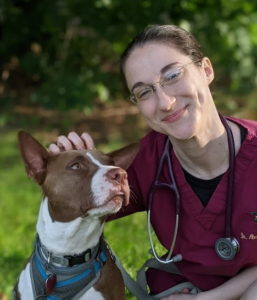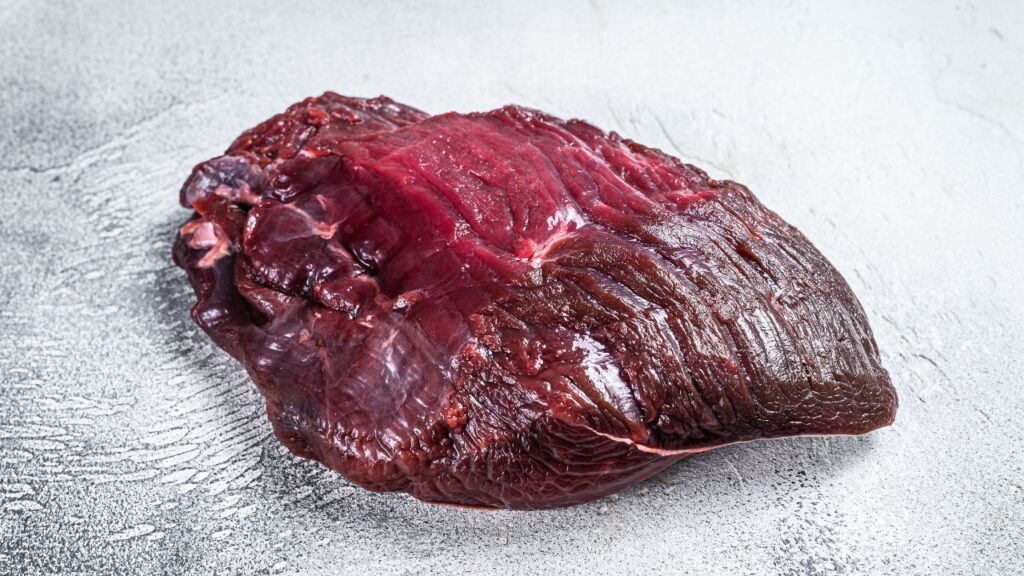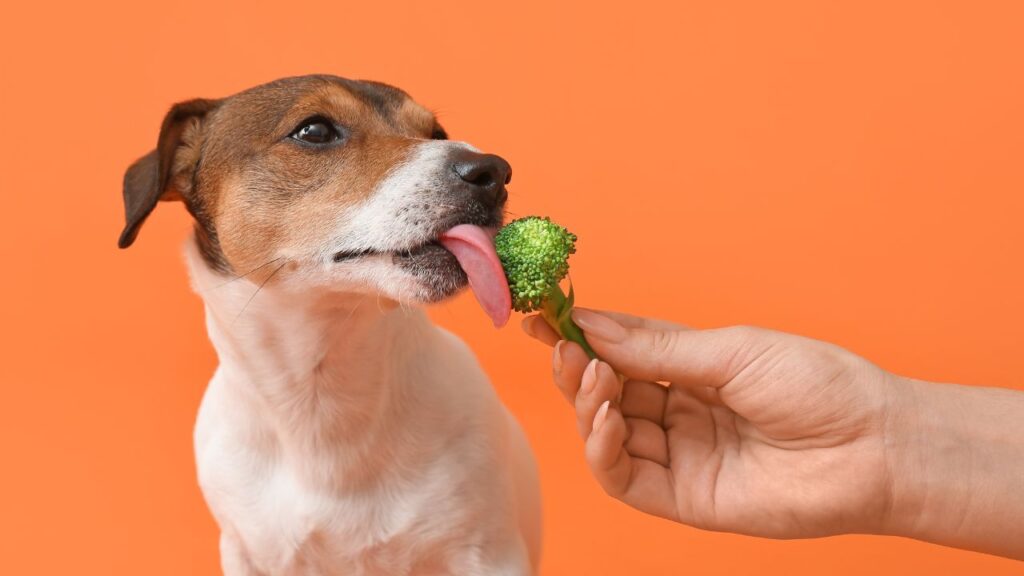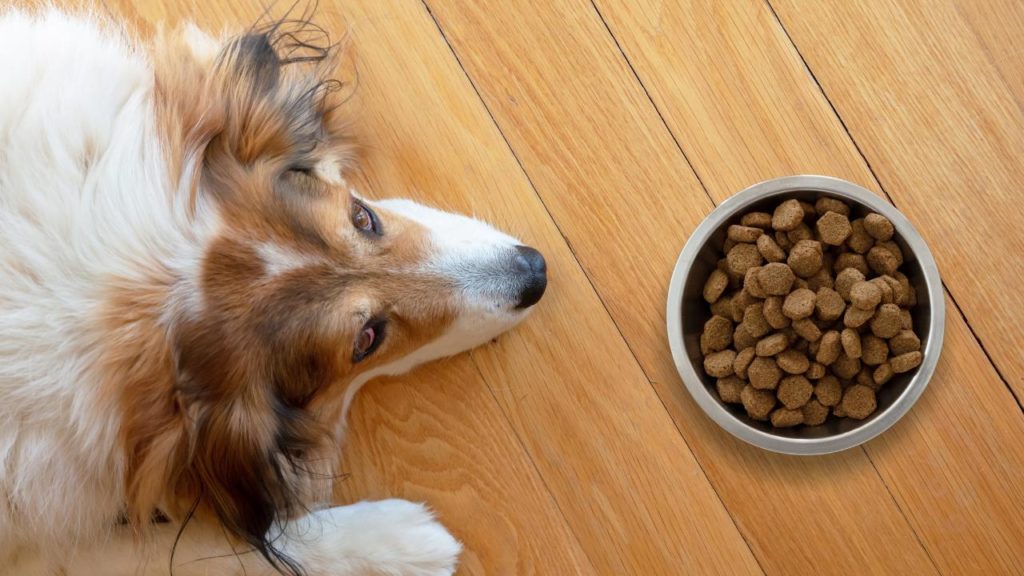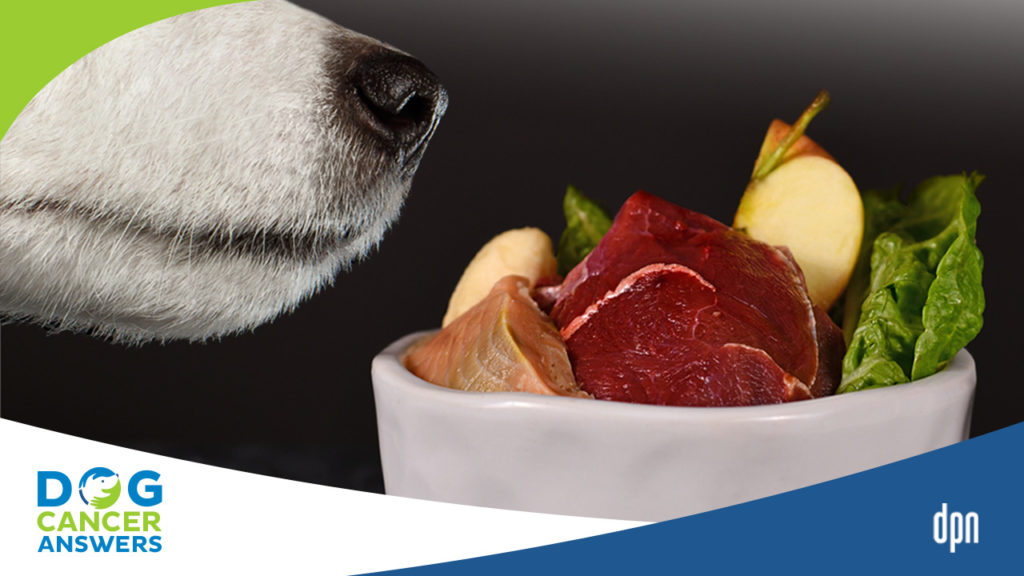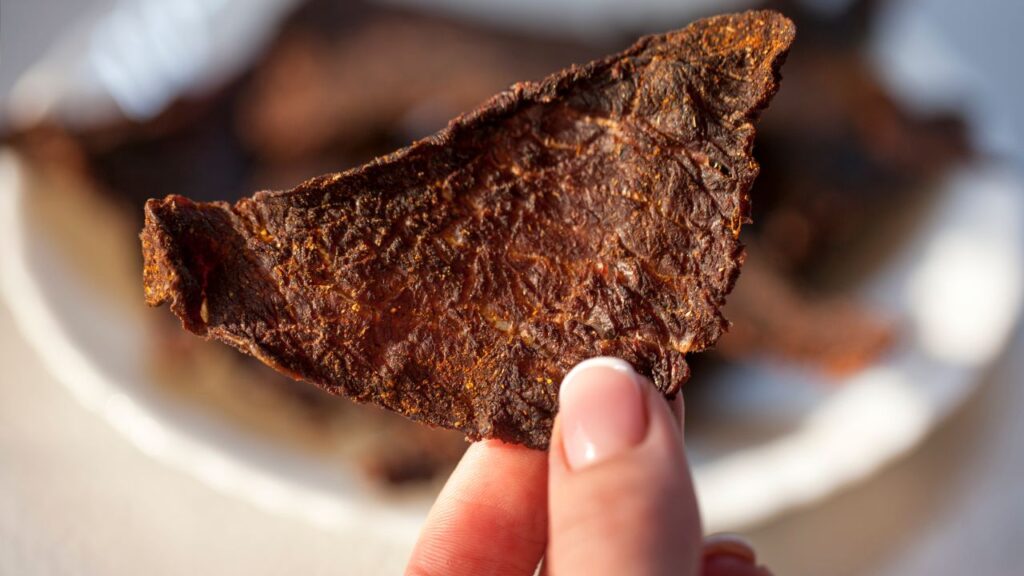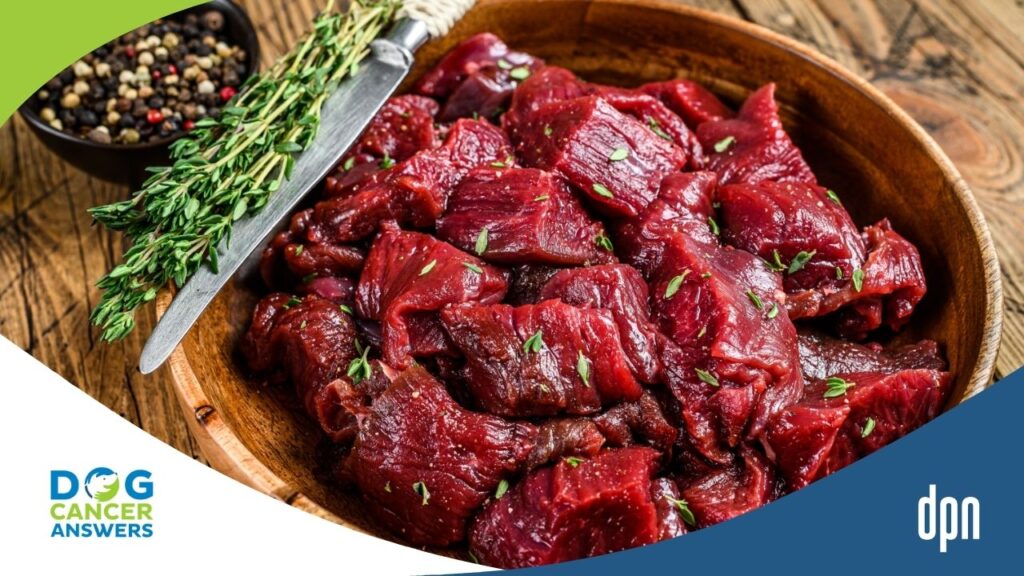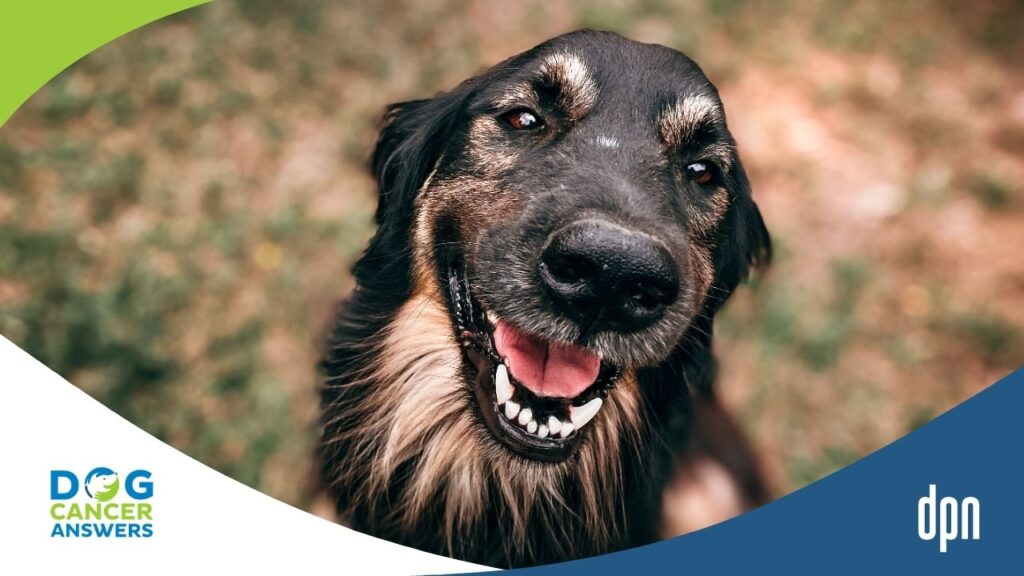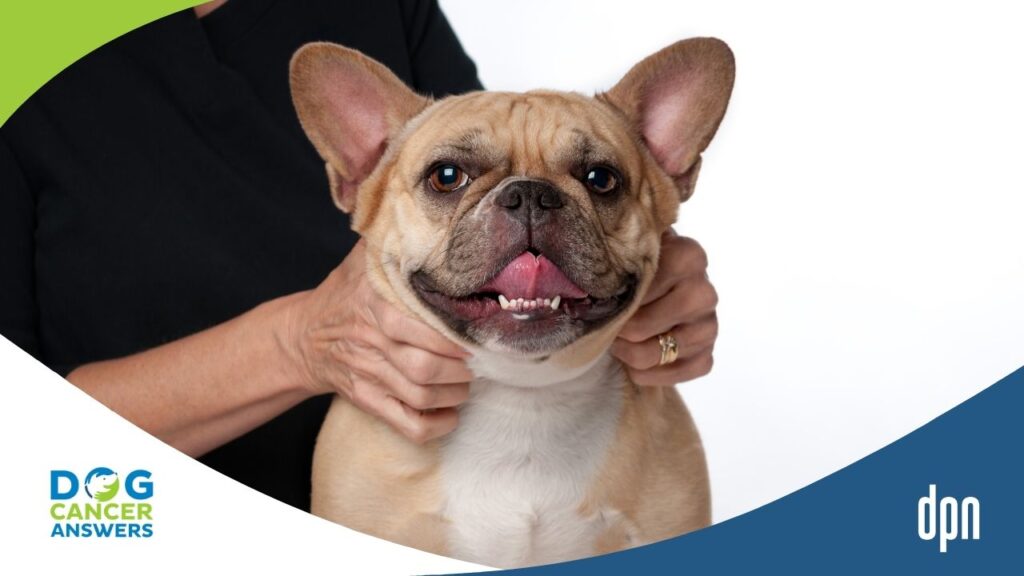EPISODE 223 | RELEASED July 10, 2023
Why Venison is Good for Dogs | Dr. Alex Ubell
Deer meat for dogs? You bet! Venison is high in protein and healthy fats, making it a great option for many dogs.
SHOW NOTES
Veterinarian Dr. Alex Ubell tells us all about the nutritional benefits of venison for dogs, as well as things to consider when deciding where to get venison for your dog.
As well as being delicious, locally hunted venison is a sustainable food source. But hunting comes with its own special considerations for type of bullet used (no lead!), handling of raw meat, and making sure that the deer are healthy and don’t pose a risk to you or your dog.
Listen in to learn why venison is a safe option for dogs with cancer and those who need to lose some weight.
Links Mentioned in Today’s Show:
Venison for Dogs article: https://www.dogcancer.com/articles/diet-and-lifestyle/venison-for-dogs/
BalanceIt Home Recipe Resource: https://balance.it/
MauiNui Venison: https://mauinuivenison.com/
[00:00:00] >> Dr. Alex Ubell: We know that polyunsaturated fats like omega-3 fatty acids can actually help reduce symptoms and severity of cancer and also increase appetite. So that’s gonna be really super important to our dogs that are working on maintaining muscle mass and keeping them as healthy as we can.
[00:00:22] >> Announcer: Welcome to Dog Cancer Answers, where we help you help your dog with cancer.
[00:00:28] >> Molly Jacobson: Hello, friend. My name is Molly Jacobson and today on Dog Cancer Answers, we are going to talk about a unique protein for your dog, venison. That’s right, deer meat isn’t just for hunters and their families. Your dog can enjoy it too, as a treat or a part of their regular diet.
Our guest today is veterinarian Dr. Alex Ubell, who wrote a fascinating article on venison for our website, dogcancer.com. Let’s talk about venison.
[00:00:57] >> Dr. Alex Ubell: All right.
[00:00:58] >> Molly Jacobson: All right, so I know, personally, venison is delicious. It’s dear meat, in essence. To me, it’s something that my uncle used to bring during hunting season and we would put it in the freezer and then eat it all winter long and it was delicious.
So what is venison to you?
[00:01:20] >> Dr. Alex Ubell: So, venison is defined as meat from uh different game animals, antlered game animals. So mostly we think of it as deer, and most venison in the US is going to be from white-tailed deer. But other animals that are still considered venison would be things like elk, reindeer, and then some other deer species that we see in the US, not as common as the white-tailed deer. We see red deer, mule deer, sika deer, fallow, and muntjac.
Personally, not really where I am, but I think there’re some, uh, some muntjac in Texas. So I think a lot of deer species we’ve brought in, you know, from other countries in, you know, Asia, and raised here. So, those are not as common as the white-tailed.
[00:02:09] >> Molly Jacobson: So is most venison that’s commercially available in the US – is it commercial or is it like, when people are eating venison, are they doing what I was doing when I was a kid and eating it because it came from the woods nearby? Or are most people buying it?
[00:02:24] >> Dr. Alex Ubell: Well, these days, because, you know, novel protein sources and proteins aside from our kind of standard, you know, beef, poultry, and pork, I think venison has kind of increased in popularity. So the amount of venison’s probably greatest coming from deer farms. And so that’s gonna be available, um, it can be available at your grocery store, butcher shops, sometimes the farms will directly sell it, I believe. But there’s certainly a, you know, large population in the US that does get their venison through hunting.
It’s an incredibly sustainable way to get meat and, um, yeah, and that’s also good for the, the local environment as well.
[00:03:06] >> Molly Jacobson: Okay, so it’s good for the humans. Is it good for the dogs?
[00:03:10] >> Dr. Alex Ubell: It is absolutely good for the dogs. So for healthy dogs, it’s a great source of, of protein. It’s not gonna be that different health-wise for them compared to beef, but the benefits of venison, mainly that it’s much higher in protein and lower in fat than beef, can actually be very beneficial for some dogs with health conditions, especially those who are overweight or even dogs with cancer.
[00:03:38] >> Molly Jacobson: Okay. All right, so this is something we can feed our dogs with cancer.
[00:03:42] >> Dr. Alex Ubell: Absolutely. And that it actually may be a better option than beef in some situations because we know that dogs with cancer do have an increased protein need. Venison typically has around 20-25% protein, which is higher than most other sources, most other meat sources, and has a great kinda selection of vitamins and minerals that are gonna be good. Um, it has more copper and iron than beef. And then also is a great source of vitamins like potassium, phosphorus, zinc, and then a whole bunch of trace elements like chromium, molybdenum, manganese, selenium.
[00:04:26] >> Molly Jacobson: Oh wow.
[00:04:27] >> Dr. Alex Ubell: So a whole, whole range of really wonderful vitamins and minerals, also vitamin K and B12. And one of the things that actually makes it really ideal for dogs with cancer is that it has a higher concentration or higher amount of polyunsaturated fatty acids than beef. It actually contains three times more polyunsaturated fat than beef. And we know that polyunsaturated fats like omega-3 fatty acids can actually help reduce symptoms and severity of cancer and also increase appetite.
So that’s gonna be really super important to our dogs that are working on maintaining muscle mass and keeping them as healthy as we can.
[00:05:13] >> Molly Jacobson: Yeah, that makes sense because they’re generally eating grasses, right? And grass fed, pasture fed animals in general are getting more omega-3 fatty acids in their diet, so they pass that on to us. Am I right about that?
[00:05:26] >> Dr. Alex Ubell: In a way, yes. So with venison, there is a difference between whether or not it’s kind of a naturally grazing animal or if it’s fed concentrate.
[00:05:38] >> Molly Jacobson: Ah.
[00:05:38] >> Dr. Alex Ubell: So for deer that are farm raised, they’re more likely going to be raised off concentrate, and so they’re gonna have a slightly higher fat concentration-
[00:05:48] >> Molly Jacobson: Okay.
[00:05:48] >> Dr. Alex Ubell: -the muscle meat, than grazed animals. So if, you know, the deer that you get through hunting is probably gonna have a lower, you know, fat content than one that was from a farm raised on concentrate feed.
[00:06:02] >> Molly Jacobson: Okay. But it will still be those good polyunsaturated fats that provide that anti-cancer benefit?
[00:06:10] >> Dr. Alex Ubell: Yes, absolutely.
[00:06:11] >> Molly Jacobson: Okay, great. What other dogs might benefit?
[00:06:14] >> Dr. Alex Ubell: Overweight.
[00:06:15] >> Molly Jacobson: Overweight dogs. Okay.
[00:06:16] >> Dr. Alex Ubell: Overweight. Yep. So because it’s got a nice high level of protein with low fat and lower calories-
[00:06:23] >> Molly Jacobson: Ah.
[00:06:24] >> Dr. Alex Ubell: It’s a really great source. Yeah, I think personally it’s an underutilized source of protein for dogs. You know, just like obesity is an issue with people, it’s also a big issue with our pets. And so, you know, if there’s a way to kind of meet that protein need, but kind of dial down the amount of fat, you know, and carbohydrates that they’re eating, you can get to a healthier weight a little faster. Now that being said, if you’re doing like a home cooked diet and you’re giving venison because it’s so low fat, it’s really important to make sure that you are giving a fat source-
[00:07:00] >> Molly Jacobson: Ah.
[00:07:01] >> Dr. Alex Ubell: -in addition to the venison, because venison’s definitely a meat where you need to, um, really kind of balance things out in the diet because, you know, it can be easy with venison if that’s kind of the the crux of your diet to not add enough fats in.
[00:07:17] >> Molly Jacobson: That’s good information. That’s where, you know, we always remind people that diet is just not a straightforward thing, right? Everything you add or take away unbalances or rebalances and you wanna make sure that you’re not overdoing anything.
[00:07:32] >> Dr. Alex Ubell: Exactly.
[00:07:33] >> Molly Jacobson: So venison, we wanna make sure that we’re getting enough fat in the diet and additional support.
[00:07:38] >> Dr. Alex Ubell: Mm-hmm. And you know, definitely if you’re doing an, you know, home cooked diet, consult sites like Balance It, that’s a great, they’ve kind of revamped it recently, so it’s a little different than it was, but still kind of has the, kind of same features of, you know, you can put in your protein source and what you’re putting in the diet and it’ll help determine what you need to do to get it balanced. But I also definitely recommend people contact a veterinary nutritionist.
[00:08:05] >> Molly Jacobson: Sure.
[00:08:06] >> Dr. Alex Ubell: You know, if they wanna switch up their dog’s protein source, that’s a great thing to do. But you know, reach out to someone who has that expertise so you can make sure you keep your dog as healthy as possible.
[00:08:17] >> Molly Jacobson: That sounds good. Are there any dogs who should not eat venison?
[00:08:23] >> Dr. Alex Ubell: Most dogs tolerate venison very well, so it’s not that there’s, you know, it’s gonna be bad with venison. You know, it, previously it was kind of known as this, you know, novel protein source for dogs with allergies. But we now know that it can cross react and it can still have some issues with dogs that are allergic to beef.
[00:08:45] >> Molly Jacobson: Ah.
[00:08:45] >> Dr. Alex Ubell: So if you have a dog that is allergic to beef, venison may not be a good protein source.
[00:08:50] >> Molly Jacobson: Okay.
[00:08:51] >> Dr. Alex Ubell: Because they may still have allergic symptoms with that protein source. So that would be a situation where, you know, I’d caution against venison to try to find something, you know, a little bit different, you know, something like kangaroo or some, some of those other proteins that are, you know, a little bit more diverged, you know, from the, from the beef and, and venison.
[00:09:13] >> Molly Jacobson: Okay. Kangaroo, that would be an interesting protein to investigate for sure.
[00:09:17] >> Dr. Alex Ubell: Kangaroo.
[00:09:19] >> Molly Jacobson: Yeah. So my understanding is that we need to be careful about parasites and other things in meat that is hunted. Is the commercial meat a little bit safer in terms of those things? What are the things to worry about with venison?
[00:09:35] >> Dr. Alex Ubell: Yeah, so in terms of like microbial contamination, it’s definitely an issue if you are, if you’re hunting and, and getting it yourself, but it’s also an issue for farmed venison as well. The main bacteria that we’re concerned about are, you know, your kind of, your mainstays of Salmonella and E. Coli. You know, those are, still pose an issue here, like they do with other types of meat.
Brucella, like brucellosis, also protozoans like toxoplasmosis, or parasites like trichinella, so those can all be present in venison. I would never recommend feeding venison raw, especially not for dogs with cancer, ’cause they’re likely gonna have reduced strength in their immune systems and so they’re gonna be less able to fight off any microbes that you know might be hiding in the meat there.
Other things that can be an issue with venison, things like nitrosamines, which are toxic and potentially cancer-causing substances that can be created through a number of different means, but primarily come about through pollution and fertilizers in areas nearby to where animals are grazing. So it’s more likely to be in the meat in areas, if you’re hunting in areas that maybe have some kind of local pollution issues.
And that goes also for the toxic metals. So we do tend to see more toxic and heavy metals in game meat. So those would be metals like cadmium, lead, mercury, and arsenic. So unfortunately we can see those more in game meats.
[00:11:16] >> Molly Jacobson: So would those be more present you think in meat that is hunted or farmed, or does it matter? Is it in both?
[00:11:25] >> Dr. Alex Ubell: I think deer that come from different sources are going to be a little bit different in their makeup, right?
[00:11:31] >> Molly Jacobson: Sure.
[00:11:31] >> Dr. Alex Ubell: So depending on, you know, what is the habitat of that particular deer that you’ve hunted versus what is the environment of the farm in terms of, you know, what are they feeding and where is it located and all those kind of things can vary.
[00:11:47] >> Molly Jacobson: Okay.
[00:11:47] >> Dr. Alex Ubell: But generally game meat is, is known to be a little bit higher in those, um, toxic metals, and that also can be affected by how they’re hunted. So it’s really important not to use, you know, bullets or shot that has any lead in it. So you know, make sure that you, you know, try to reduce the amount of heavy metals as much as possible if you are hunting.
[00:12:10] >> Molly Jacobson: Right. It’s funny to think of hunting as being a progressive cause, but in some ways it really is. That evolution of de-leading bullets so that we don’t contaminate meat with heavy metals is really an interesting turn of events.
[00:12:25] >> Dr. Alex Ubell: Yes. Yeah, absolutely. Yeah. No, hunting gets, you know, it certainly gets a, a bad rep in some, you know, some areas of the country, but certainly for deer can have a lot of very positive impact, you know, on the local ecology. And I will go right to that, but I did wanna make sure I didn’t neglect chronic wasting disease.
[00:12:44] >> Molly Jacobson: Oh yes.
[00:12:44] >> Dr. Alex Ubell: Um, ’cause that is something that we do see, unfortunately, quite a bit in deer. So not likely in a, hopefully not, in a farmed, in farmed deer, but certainly present in the wild. Um, so if you are hunting, you wanna make sure not to hunt animals that look a little off, that are maybe thin, unkempt, are they drooling, you know, appearing listless. So those are some of the symptoms of chronic wasting. It’s a hundred percent fatal and is a prion disease.
[00:13:18] >> Molly Jacobson: Oh.
[00:13:18] >> Dr. Alex Ubell: Um, it’s also not killed through heat or cooking.
[00:13:21] >> Molly Jacobson: Oh.
[00:13:22] >> Dr. Alex Ubell: Yep. So.
[00:13:23] >> Molly Jacobson: Is it a bacteria, is it a?
[00:13:25] >> Dr. Alex Ubell: It’s a prion. So a prion is essentially a misfolded protein that’s almost infectious to other proteins in terms of like, it kind of gets them to fold incorrectly as well. And so it can-
[00:13:40] >> Molly Jacobson: That’s strange.
[00:13:40] >> Dr. Alex Ubell: It’s a really, it’s a really interesting, you know, ’cause you can’t even really call it a microbe, but it’s a really interesting kind of disease process. Mad cow disease is another example of a prion.
[00:13:50] >> Molly Jacobson: Okay. So, yeah, that would be bad if you, it’s not killed by, ’cause it’s a problem in the protein itself. It’s not killed.
[00:13:58] >> Dr. Alex Ubell: Correct. It’s the protein folding, you know, and it’s something that, you know, likely doesn’t pose a serious risk to human health, although I would strongly recommend against eating any deer that you have any concern of being affected by chronic wasting disease. And I would also recommend getting your deer tested, getting that tested so that you know it’s safe to consume.
You know, have there been reports of illness in a person directly tied to chronic wasting? I don’t believe so. That being said, I would strongly caution against.
[00:14:36] >> Molly Jacobson: Yeah, why chance it?
[00:14:37] >> Dr. Alex Ubell: You know, exactly. We know that, you know, mad cow can potentially, you know, lead to Creutzfeldt-Jakob, which is kind of related to protein misfolding. So try to avoid that if at all possible.
[00:14:51] >> Molly Jacobson: Yeah. Okay. So no chronic wasting disease deer. And the way, if you’re hunting, is you just, if the deer looks sick.
[00:15:00] >> Dr. Alex Ubell: Yeah. Don’t.
[00:15:01] >> Molly Jacobson: Don’t.
[00:15:01] >> Dr. Alex Ubell: Don’t eat it.
[00:15:02] >> Molly Jacobson: Don’t eat it.
[00:15:03] >> Dr. Alex Ubell: Don’t eat it. Yes. And get your deer tested for chronic wasting before consuming, because they don’t all obviously look sick. You know, they can be at different stages. So it’s, it’s still a good idea to get them tested.
[00:15:16] >> Molly Jacobson: Yeah. Okay. That sounds really helpful. And then you mentioned that heat doesn’t destroy chronic wasting disease.
[00:15:24] >> Dr. Alex Ubell: Correct.
[00:15:25] >> Molly Jacobson: Let’s take a short break here and then when we come back, I want you to talk about how to cook venison.
And we’re back with Dr. Alex Ubell. So how do you recommend venison be prepared?
[00:15:40] >> Dr. Alex Ubell: Well, as long as you’re, you’ve tested the deer and they test negative for chronic wasting, then you don’t really have to be concerned in terms of that issue.
[00:15:50] >> Molly Jacobson: Okay.
[00:15:51] >> Dr. Alex Ubell: In terms of preparing it, you should really cook venison, especially if it’s ground meat, to a hundred sixty, a hundred sixty five degrees Fahrenheit.
[00:16:01] >> Molly Jacobson: Okay.
[00:16:02] >> Dr. Alex Ubell: You know, for ground it’s gonna be on that higher end. If it’s something like venison steaks, it’s gonna be, you know, you can go with, you know, 160 ’cause it’s not as much that risk of contamination as there is with ground meat. So if you get to 165, you’re gonna be killing off harmful bacteria and the meat will be safe to consume at that time.
[00:16:23] >> Molly Jacobson: Okay. Okay, that sounds good. So that’s across the board, farm raised, hunted. Get it to 160 if it’s a steak and 165 if it’s ground.
[00:16:34] >> Dr. Alex Ubell: If it’s ground, yeah. And with, with venison, because it has such an high iron content, you know, you can’t really gauge doneness in a venison steak the way you can with beef. So definitely use a thermometer. That’s, you know, that’s gonna be your best bet to know really where you are in the cooking process.
[00:16:52] >> Molly Jacobson: All right. That sounds really good. There’s a company here in Maui that hunts venison and then makes delicious venison strips.
[00:17:00] >> Dr. Alex Ubell: Ooh.
[00:17:00] >> Molly Jacobson: And they sell them as dog treats on the mainland.
[00:17:04] >> Dr. Alex Ubell: Like jerky?
[00:17:04] >> Molly Jacobson: Yeah, venison jerky. And I can’t remember the name of the brand. We can put a link in the show notes, but dogs go mad for them.
[00:17:12] >> Dr. Alex Ubell: I love venison jerky. I, I bet they do.
[00:17:14] >> Molly Jacobson: Yeah.
[00:17:15] >> Dr. Alex Ubell: I would go, I would go mad for them.
[00:17:17] >> Molly Jacobson: Yes. I know the gentleman who owns the company and it’s a good thing. We need to keep our deer population really controlled ’cause we’re an island. And it’s the best way. It’s making dogs happy. It’s a little bit of Maui in deer strips.
[00:17:33] >> Dr. Alex Ubell: That’s what’s so great about, you know, deer and as a, you know, sustainable food source, is there’s so many areas of the country that are being just kind of overrun with deer, mostly white-tailed deer. And in some areas of the country, it’s, gets to where there’s, you know, hit by car problems ’cause you know, and they’re causing problems in the local wildlife, the plant matter that they’re eating and you know, they’re kind of disrupt local ecology.
So typically the number of hunting licenses that are provided every year by various fish and wildlife agencies are typically determined by, you know, what is their deer population and how many, you know, how many licenses are they gonna give out to, you know, try to scale that population to a healthy place. So in that way, I think hunting’s a really, a really great thing to do to kind of augment, you know, your, your family’s protein intake.
[00:18:28] >> Molly Jacobson: Absolutely, and as long as you are being cognizant of the potential, you know, choosing the right bullets and not eating meat that has chronic wasting disease, then it’s safe and it’s.
[00:18:40] >> Dr. Alex Ubell: Absolutely.
[00:18:41] >> Molly Jacobson: Frankly, it’s truly delicious food.
[00:18:44] >> Dr. Alex Ubell: It is. And I, I did wanna throw in there, if you are a hunter out there listening, um, some important things to remember when you’re handling deer after, you know, after hunting, you wanna make sure that you always wear gloves when you’re dressing the meat, just in case there’s a chronic wasting issue. Try to avoid handling the brain and spinal cord.
And if you’re hunting in temperatures over 40 degrees Fahrenheit, you should make sure to chill that meat within three to four hours. If you don’t, bacterial growth and contamination will become a more serious issue. So you really need to get that meat cooled down as soon as possible.
[00:19:29] >> Molly Jacobson: Great tips. Do you have anything else to share with us about venison today?
[00:19:36] >> Dr. Alex Ubell: Let’s see, what else do we wanna share. In terms of just kind of an example of what we can see with venison, and this is direct from the USDA, with three and a half ounces of ground venison, you can expect that it will have around 160 calories, 22 grams of protein.
[00:19:56] >> Molly Jacobson: Wow.
[00:19:57] >> Dr. Alex Ubell: And then around seven grams of fat. Now the amount of fat that you can see in venison really does vary. As we discussed, it can vary because of food, it can vary because of species, it can also vary on what part of the deer you’re eating. So typically it’s in the single digits, though it can be from 3% to 8% or 9%.
[00:20:20] >> Molly Jacobson: Wonderful. It sounds like a really good option for a lot of people to try with their dogs. How do you recommend people start feeding their dogs venison if they want to try this perhaps novel protein?
[00:20:33] >> Dr. Alex Ubell: Sure. Yeah. I mean, I, I always, uh, like to recommend, you know, start, start small. You know, see if your dog likes venison, you know, start off just, you know, before deciding, you know, making kind of the unilateral decision to, to put your dog over to a new protein source, make sure that they like it.
[00:20:50] >> Molly Jacobson: Yeah.
[00:20:50] >> Dr. Alex Ubell: Um, you know, a diet isn’t gonna do your dog any good if they don’t eat it. So I recommend, you know, starting as a little snack, you know, maybe one ounce bit of, you know, meat that you kind of cook up, give as a little treat or you know, like a little training treat or things like that. See if your dog does well with it. And you know, if they enjoy it and you have a good access to venison and wanna make that a more regular part of their diet, I absolutely think that’s a great idea.
Just make sure that you check in with your, with your vet or nutritionist or balancing software so you can make sure that you are, again, not kind of throwing things out of balance in terms of the fat content, especially, of your dog’s diet.
[00:21:34] >> Molly Jacobson: Right. Well, thank you, Dr. Ubell for joining us today and talking to us about venison. We so appreciate your expertise and insights.
[00:21:43] >> Dr. Alex Ubell: Well, thank you so much for having me. It’s been great speaking with you today.
[00:21:48] >> Molly Jacobson: And thank you friend for listening. Locally hunted venison is a great sustainable meat choice for your dog. All venison is a healthy protein source for our dogs with cancer. You might consider adding venison to your dog’s diet if she needs some extra protein and healthy fat, or if you’re looking to lose some weight, or if she just wants to try something different.
Check out the show notes for links mentioned in today’s show. And don’t forget to follow us in your favorite podcast app. As always, you can always access all of our past episodes and many more dog cancer resources on our website at dogcancer.com.
I’m Molly Jacobson. From all of us here at Dog Podcast Network, I’d like to wish you and your dog a very warm, Aloha.
[00:22:36] >> Announcer: Thank you for listening to Dog Cancer Answers. If you’d like to connect, please visit our website at dogcancer.com or call our Listener Line at (808) 868-3200. And here’s a friendly reminder that you probably already know: this podcast is provided for informational and educational purposes only. It’s not meant to take the place of the advice you receive from your dog’s veterinarian.
Only veterinarians who examine your dog can give you veterinary advice or diagnose your dog’s medical condition. Your reliance on the information you hear on this podcast is solely at your own risk. If your dog has a specific health problem, contact your veterinarian. Also, please keep in mind that veterinary information can change rapidly, therefore, some information may be out of date.
Dog Cancer Answers is a presentation of Maui Media in association with Dog Podcast Network.
Hosted By
SUBSCRIBE ON YOUR FAVORITE PLATFORM
Topics
Editor's Picks
CATEGORY
